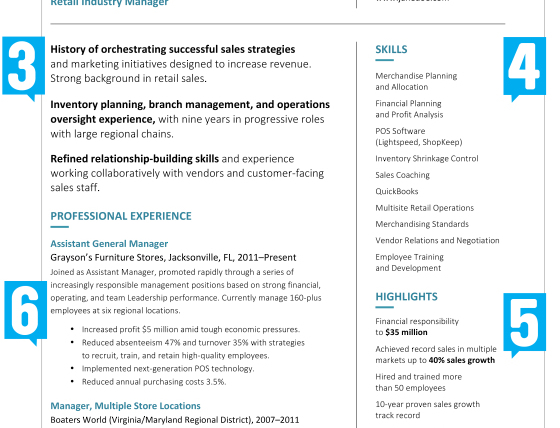
5 Tips For College Freshman To Help Maximize Year One
Heading to college for the first time can be daunting, and that’s true whether you’re attending a public four-year university or a prestigious Ivy League school. You have to get the lay of the land, make friends, and figure out how to do well in your courses all within a few weeks. And with the effects of Covid-19 still lingering in some spots, you may be stuck trying to navigate a college world that is still partly online. While convenient, the virtual aspects of higher education can make forging connections that last a challenge to say the least.
Still, college freshmen can set themselves up for success if they’re willing to make the right moves and put in some legwork. At least, that’s what the experts I interviewed had to say.
If you’re a freshman who is hoping to begin their college career on solid footing, the following tips can help.
1. Always Go To Class
Mark Beal, who is a college professor and the author of 101 Lessons They Never Taught You In High School About Going To College, says skipping class is one of the easiest things to do, which is why too many college freshmen do it. However, this is one big mistake you should avoid.
“No matter how early in the morning a class takes place or how late on a Thursday night, never skip class,” he says, adding that it doesn’t take too much to walk across campus and attend class for 80 minutes.
From there, Beal says to be an active participant — as in, listen, take notes and ask or answer questions. Not only do you have the chance to learn more this way, but you never know who is paying attention to you and your actions.
“The students I have taught who have taken this strategic approach to classroom participation have made a lasting impression with me and are the same students who I am eager to recommend for future internships and jobs or write a strong recommendation letter on their behalf,” says Beal.
Investing Digest: Know what’s moving the financial markets and what smart money is buying with Forbes Investing Digest.Sign Up
You may opt out any time. By signing up for this newsletter, you agree to the Terms and Conditions and Privacy Policy
2. Be Proactive About Your College Education
You may not have any idea what you want to study when you head off to college, or perhaps you have chosen a major but you’re still unsure of the way you want to go. Either way, Mark A. Herschberg, author of The Career Toolkit, Essential Skills for Success That No One Taught You, says you can spend your first year of college exploring potential majors. Go to department open houses, he says, but also sit in on a class or two in a field you’re interested in. If you find something that piques your interest, you can also find an upperclassman or professor and ask if you can stop by their lab and learn more about what they do.
“Most people find it flattering when you take an interest in their work,” he says.
You can also ask other students about cool classes they have taken. Herschberg points out that Steve Jobs famously sat in on calligraphy classes.
“Look at some weird, random classes and ask people who took them what they’re about,” says Herschberg. “You never know when it could lead to something interesting.”
3. Focus On Networking
Tammy Huang, a 10-year interviewer for Harvard Admissions and the founder of College Launch, says college freshmen should go out of their way to meet people that can help make their college experience a success. This includes getting to know your college counselor and making a plan for a pre-major pathway and general education courses.
Huang also recommends forming a positive support group by joining meaningful clubs and making friends with people within your dorm or apartment community and other organizations that align with your interests and goals. Finally, Huang suggests finding a mentor by looking for a professor that has a professional background you are interested in that also matches well with your personality.
“Mentors can open doors to opportunities and also write future letters of recommendations,” she says.
4. Take Care Of Your Mental Health
The first year of college is an incredible time of change, and some first-year students handle it a lot differently than others.
Cory Trevena, Senior Director of Education at Caron Treatment Centers, says college freshmen should learn the signs and symptoms of anxiety and depression just like they know the Wednesday specials at the cafeteria.
A little anxiety, homesickness and sadness is normal as you transition into college life, she says. “But if you’re feeling hopeless for days on end or you notice a radical change in your behavior, it’s time to reach out.”
Where can you go for help? Trevena points out that campus counseling centers offer services for students that can help them figure out whether they would benefit from regular therapy. In some cases, students might also just need help creating a healthy structure and support system for their new lives.
5. Be Mindful About Money
We have all heard stories of students blowing student loans on spring break trips and clothes only to regret those choices years or even decades later. Regardless of how your college career is being funded — through a merit scholarship, through parents or with student loans — it’s important to be careful about spending and not overborrowing.
Brian Gawor, the Vice President for Research at RNL (a platform company that helps colleges and universities amplify student enrollment, success and philanthropic support), says freshmen should learn to utilize what is already available and paid for at school. For example, don’t spend a ton on food and dining out while also paying for a meal plan. Also learn about the tutoring, help with writing, and technology assistance that are available at your school.
“You’ll find a lot of value in these things you’re probably already paying for with your tuition and fees,” notes Gawor.
Casey Welch, CEO of Tallo, also points out that students who are anxious about their finances can be proactive about earning money.
“Students looking for part-time work should consider applying to companies that offer some type of tuition assistance program, such as Chipotle, Chick-Fil-A, or Starbucks,” says Welch. “This way, students will receive both a paycheck and additional financial support to put towards tuition — all while getting valuable work experience to show off on their resume.”






